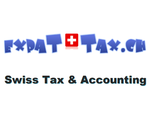To open a bank account in Switzerland, you will be requested a variety of documents that will ensure that your account is not used for illegal purposes. Furthermore, these documents will need to be authenticated at a physical branch of the bank or by providing such documents notarised. Depending on the bank you are creating the account at, the documents will vary, but the most common ones are:
- Proof of identity (passport or ID)
- Proof of residence (visa, residence or work permits)
- Proof of address (utility bills)
- Proof of income (if not resident in Switzerland yet)
Different types of accounts include the following:
- Current accounts - useful for day-to-day management of your money, but pay little interest.
- Salary accounts (Lohnkonto - compte salaire) pay a little more interest than current accounts, but you don’t get a chequebook and/or some other services.
- Saving accounts (Sparkonto – compte de livret) offer higher interest, but are not very useful for many transactions.
You can open a foreign currency account in Switzerland, however, these don’t usually pay interest. The Swiss franc is one of the most stable currencies in the world.
Many banks also have special types of accounts that don’t fall into a specific category – bear in mind that fees can vary considerably between them. The best thing to do is to ask several banks for full information and compare different offers.
Student accounts
For students and young people, there are usually special accounts available with few or no account fees and better yield rates. Shop around and ask for special offers.
Account cards
In Switzerland there two types of cards. Bank cards (Bankkarte - carte bancaire) which only allow to withdraw money at the bank’s ATMs, and the Maestro cards which are used to buy in stores and other establishments as well as to withdraw money at other bank’s ATMs.




